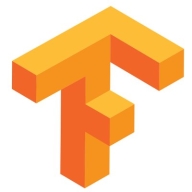

IBM Watson Studio and TensorFlow compete in AI and machine learning, with TensorFlow having the edge in feature richness and flexibility while IBM Watson Studio excels in ease of deployment and customer support.
Features: IBM Watson Studio provides integrated development tools, pre-built models, and easy collaboration to streamline processes. TensorFlow is renowned for its comprehensive libraries, scalability, and multi-language support, offering flexibility for advanced AI tasks.
Room for Improvement: IBM Watson Studio could enhance cross-platform integration, extend its library offerings, and improve scalability. TensorFlow would benefit from a more intuitive setup process, simpler debugging tools, and enhanced user interface.
Ease of Deployment and Customer Service: IBM Watson Studio is user-friendly, allowing seamless integration with existing systems and provides robust customer support with detailed documentation. TensorFlow offers flexible deployment but requires more expertise to set up, although it benefits from a large community and extensive resource support.
Pricing and ROI: IBM Watson Studio generally involves a higher initial setup cost but offers predictable ROI with its subscription-based model and integrated tools. TensorFlow, being open-source, has lower initial costs but ROI is more variable, depending on the complexity and use case.


IBM Watson Studio provides tools for data scientists, application developers and subject matter experts to collaboratively and easily work with data to build and train models at scale. It gives you the flexibility to build models where your data resides and deploy anywhere in a hybrid environment so you can operationalize data science faster.
TensorFlow is an open source software library for high performance numerical computation. Its flexible architecture allows easy deployment of computation across a variety of platforms (CPUs, GPUs, TPUs), and from desktops to clusters of servers to mobile and edge devices. Originally developed by researchers and engineers from the Google Brain team within Google’s AI organization, it comes with strong support for machine learning and deep learning and the flexible numerical computation core is used across many other scientific domains.
We monitor all AI Development Platforms reviews to prevent fraudulent reviews and keep review quality high. We do not post reviews by company employees or direct competitors. We validate each review for authenticity via cross-reference with LinkedIn, and personal follow-up with the reviewer when necessary.